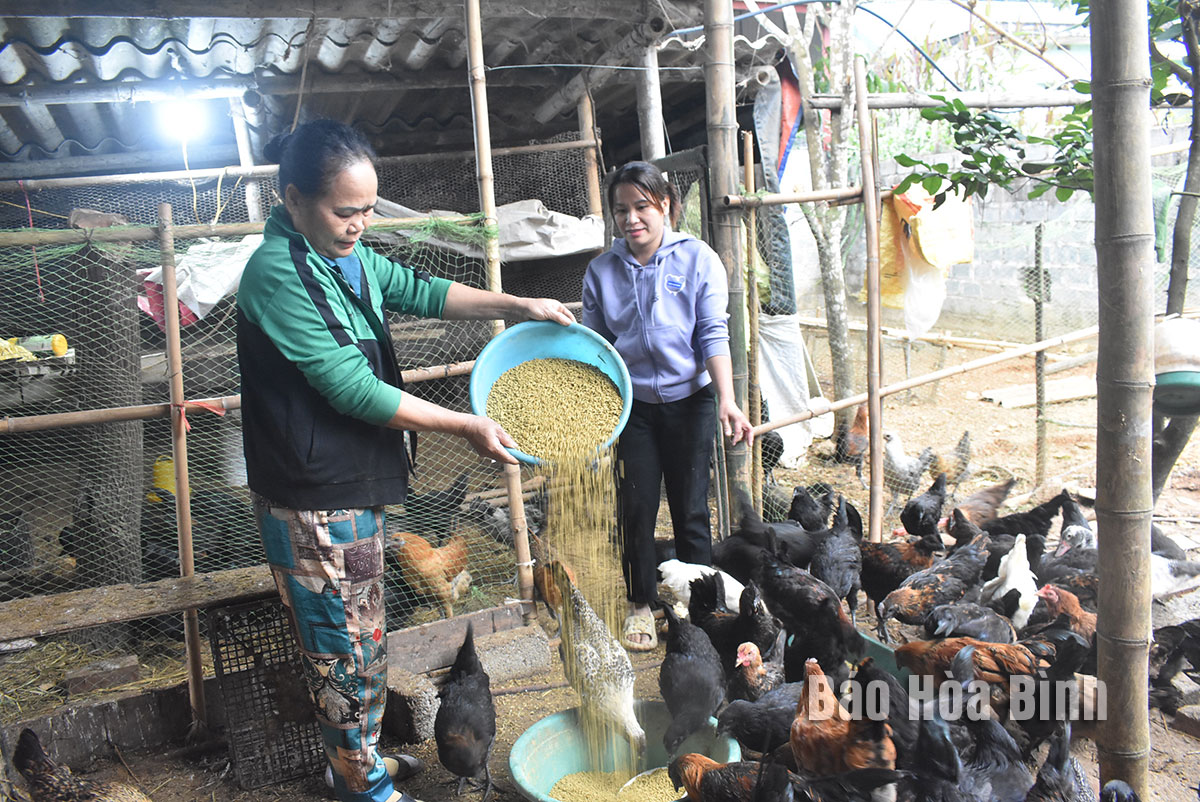
Black chicken farming model has changed the lives of vulnerable families in Mong Hoa commune of Hoa Binh city.
Ly’s fast-growing chickens.
According to Vice Chairman of the communal
People’s Committee Nguyen Van Bo, the project, part of the national target
programme on socio-economic development in ethnic minority-inhabited and
mountainous areas, has provided support for poor households, policy beneficiary
families, and people with disabilities.
Beyond economic benefits, the model has helped
enhance local people's agricultural knowledge, provides safe products for the
market, and creates a learning platform for other farmers, he said, expressing
his hope that it will be multiplied to improve local livelihoods.
Nguyen Thi Ly, a beneficiary with eight family
members, most of whom are either too young or too old to work, exemplifies the
project's positive impact. In August 2024, she received support to raise 180
black chickens, along with 45 bags of feed which are enough for the poultry
until they sold to the market.
Ly said she knew black chickens are economically
valuable but her family couldn't afford to start. With support from the city’s
agricultural service centre regarding breeding stock and feed, the chickens
have reached an average weight of 1.7-1.8 kilogrammes and attracted the
interest from local merchants.
Similar success stories come from her
neighbours. Nguyen Thi Hong, a disabled resident, and Bui Van Thai, another
participant with physical limitations, have both successfully raised healthy
chicken flocks. Thai noted the remarkable growth rate, which is two to three
times faster than traditional farming methods.
According to data from the Hoa Binh Provincial Party Committee, the industrial production index for the first six months of 2025 is estimated to have increased by 20% compared to the same period last year. This marks the highest year-on-year growth rate for this period since 2020.
In the first six months of 2025, Hoa Binh province’s export turnover was estimated at 1.145 billion USD, marking an 18.11% increase compared to the same period in 2024. Import turnover was estimated at $ 804 million, a 17.15% increase, which helped the province maintain a positive trade balance.
The lives of the ethnic minority farmers in Tan Lac district have gradually improved thanks to the new directions in agricultural production. This is a testament to the collective strength fostered through the professional associations and groups implemented by various levels of the district’s Farmers’ Union.
With the motto the "product quality comes first,” after nearly one year of establishment and operation, Muong village’s Clean Food Agricultural and Commercial Cooperative, located in Cau Hamlet, Hung Son Commune (Kim Boi district), has launched reputable, high-quality agricultural products to the market that are well-received by consumers. The products such as Muong village’s pork sausage, salt-cured chicken, and salt-cured pork hocks have gradually carved out a place in the market and they are on the path to obtaining the OCOP certification.
In the past, the phrase "bumper harvest, rock-bottom prices" was a familiar refrain for Vietnamese farmers engaged in fragmented, small-scale agriculture. But today, a new spirit is emerging across rural areas of Hoa Binh province - one of collaboration, organisation, and collective economic models that provide a stable foundation for production.
Maintaining growing area codes and packing facility codes in accordance with regulations is a mandatory requirement for agricultural products to be eligible for export. Recently, the Department of Agriculture and Environment of Hoa Binh province has intensified technical supervision of designated farming areas and packing facilities to safeguard the "green passport" that enables its products to access international markets.



